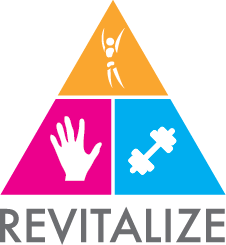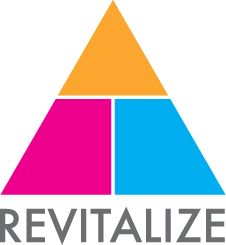Last year, I found myself in an unexpected and distressing situation with my wife. It led us to the A&E department, where we spent several tense hours waiting to be seen. While the reason for our visit was deeply personal and urgent, the experience revealed something very telling about how we, as a society, relate to our own health.
As I sat in the waiting area, surrounded by people of all ages and backgrounds, I couldn’t help but listen to the murmur of conversations around me. What struck me most was not the nature of the injuries or ailments, but the overwhelming sense of unease. Many of these individuals appeared relatively well. They could walk, move, and speak with clarity. Physically, they seemed far from being in an emergency situation. Yet, there was one thing they all had in common: fear. Not fear of what they were feeling, but fear of not knowing what they were feeling.
This is a critical insight into human nature. As a species, uncertainty is one of the most difficult states for us to tolerate. When it comes to our health, the unknown can feel deeply threatening. Even minor symptoms can feel catastrophic if we don’t understand their cause. The phrase “ignorance is bliss” may apply to other aspects of life, but in the realm of health, it couldn’t be further from the truth.
The Power of Health Literacy
What is the antidote to this fear? It’s something called health literacy. At the Revitalize Clinic in Gravesend, this is something we advocate for every day. Health literacy refers to your ability to understand and make informed decisions about your health. It means knowing how your body works, understanding basic symptoms, and having the confidence to assess whether something is serious or manageable.
In many cases, it is the lack of this knowledge that sends people to A&E unnecessarily. When you don’t know whether a chest twinge is muscular or cardiac, or whether your child’s rash is dangerous or not, panic sets in. And while it’s always best to err on the side of caution, imagine the peace of mind that comes from simply understanding your own body a little better.
Why Health Literacy Should Be Your First Priority
Numerous studies show that health literacy is one of the strongest predictors of positive health outcomes. More than income, age, or even access to medical care, your understanding of your health can determine your likelihood of recovery and long-term wellbeing. At Revitalize, we see this correlation all the time. Patients who ask questions, seek out information, and educate themselves often recover faster and manage their conditions more effectively.
But this doesn’t happen by chance. It’s something you have to commit to, just like you would any other form of personal development. Whether you’re seeing an osteopath, a personal trainer, or a counsellor, the goal should always be to understand more about your mind and body. That knowledge puts you in the driving seat, rather than being a passenger in your own health journey.
What Does Improving Health Literacy Look Like?
Improving your health literacy isn’t about memorising anatomy textbooks or learning how to diagnose complex diseases. It’s about asking the right questions and seeking trustworthy information. Here are some practical ways to start:
1. Speak to Healthcare Professionals
If you’re unsure about a symptom or want to understand your condition better, speak to your osteopath, GP, or other health professionals. At Revitalize Clinic, we welcome questions. We want you to understand your diagnosis, your treatment plan, and what you can do at home to support your recovery.
2. Book a Consultation
Even if you’re not in pain, booking a consultation can be a fantastic way to learn more about your body. Our team in Gravesend includes osteopaths, personal trainers, and counsellors who are here to empower you with knowledge tailored to your individual needs.
3. Consume Credible Content
There is a wealth of misinformation online, so it’s crucial to use credible sources. Look for educational videos, blogs, and documentaries from verified health professionals. We regularly share resources and articles through our website and social media, specifically designed to demystify health topics.
4. Utilise NHS and Local Services
Your local GP or NHS Trust may offer online tools, webinars, or leaflets that explain common health issues in simple language. These are free and incredibly valuable.
5. Be Curious
Start treating your body like a project worth studying. Notice how it reacts to certain foods, exercises, or stressors. Journaling, health tracking apps, and conversations with trusted professionals can all build your awareness over time.
The Role of the Revitalize Clinic
At the Revitalize Clinic in Gravesend, we are committed to not only treating symptoms but empowering our clients. Whether you are recovering from injury, looking to get fit, or navigating emotional wellbeing, our team of experts is here to guide you.
Our osteopaths focus on understanding the root cause of pain and helping you prevent its return. Our personal trainersdevelop programmes that strengthen your body intelligently, while our counsellors support your mental and emotional resilience. But beyond treatment, education is central to everything we do.
We explain every stretch, every technique, and every dietary change we recommend. Because when you understand whyyou’re doing something, you’re far more likely to stick with it and see results.
From Patient to Participant
One of the biggest shifts we try to create at Revitalize is helping people move from being passive patients to active participants. In the waiting room of A&E, I saw people desperate for answers, wishing someone could tell them what was going on. That sense of helplessness is something no one should have to endure.
You have the ability to understand your body. You have the right to ask questions. You can learn what is normal and what is not. And most importantly, you can be part of the solution.
Final Thoughts
Health is not just about fixing problems when they arise. It’s about building a foundation of knowledge so that you can prevent those problems, or address them early when they do occur. Health literacy is not a luxury; it’s a necessity.
If you take just one thing away from this article, let it be this: the more you know about your health, the better your health will be.
We invite you to become more engaged, more curious, and more proactive. Whether that means booking in with one of our osteopaths, starting a fitness programme with our personal trainers, or simply having a conversation with a counsellor, we’re here to support your journey.
Contact the Revitalize Clinic, Gravesend:
- Phone: 01474 356 284
- Email: info@revitalizeclinic.co.uk
- Book Online: www.revitalizeclinic.co.uk
Your health is your responsibility, but you are never alone. Let’s learn, grow, and thrive together.

